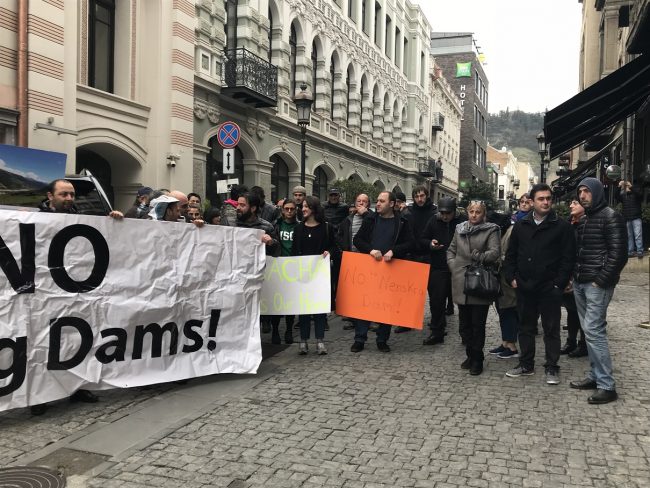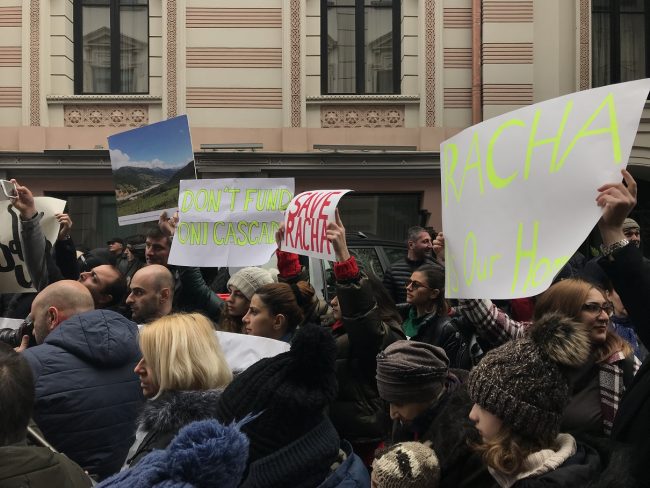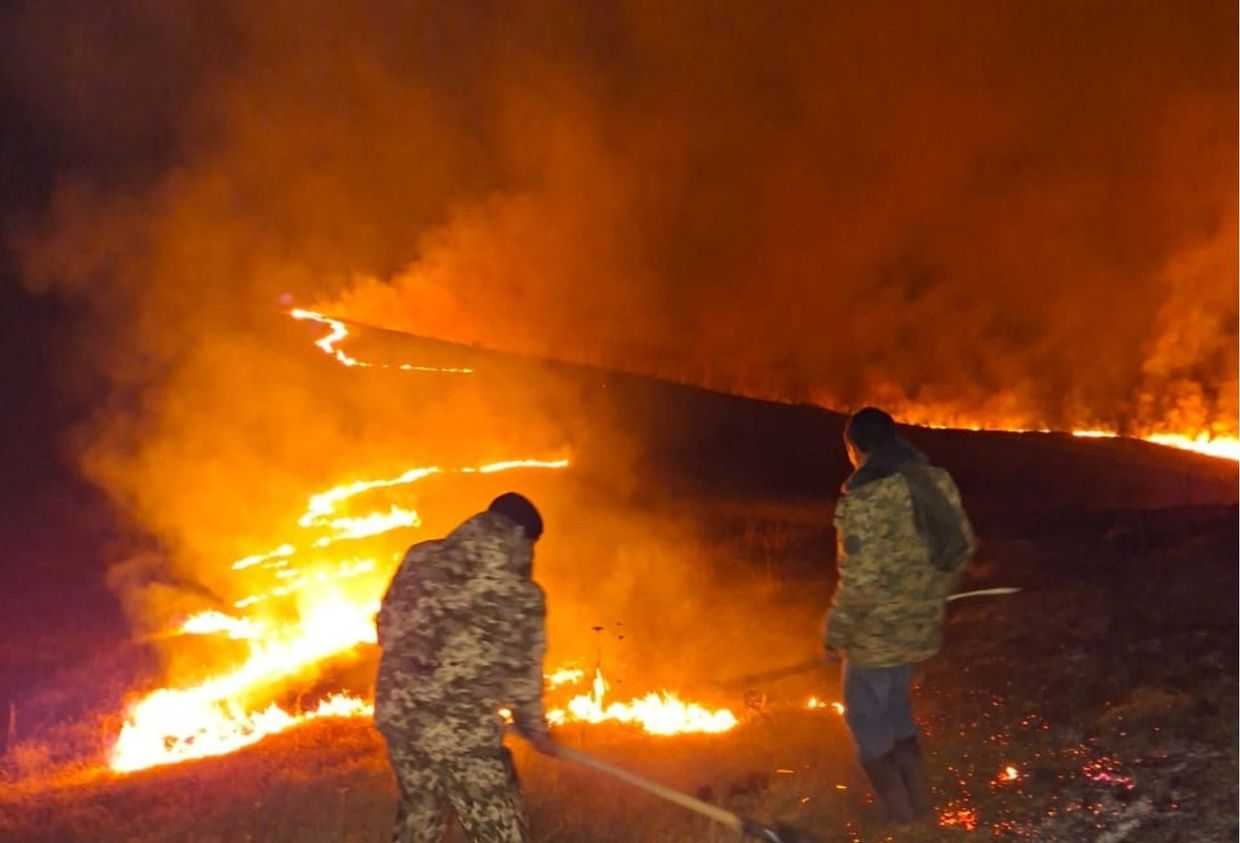

 Dozens of protesters gathered in Tbilisi on Wednesday to rally against the construction of dams in their regions. Protesters claimed the dams will heavily affect their livelihoods.
Dozens of protesters gathered in Tbilisi on Wednesday to rally against the construction of dams in their regions. Protesters claimed the dams will heavily affect their livelihoods.
More than 100 people gathered in front of the offices of the Asian Investment Bank (AIB) and European Investment Bank (EIB) near Tbilisi’s Freedom Square on 14 March.
‘Do not DAMn Georgia’, ‘Do not fund dam constructions’, ‘No to big dams’, the posters said.
While Tbilisi-based environmental activists organised the rally, it was mostly attended by people from regions who claimed their homes are threatened by planned dam constructions.
Activists from Svaneti said that if the Nenskra HPP project is constructed, hundreds of hectares of forests and other land will be flooded.
According to Georgian environmental group the Green Alternative, in addition to the HPP, an 8.7 metre high dam and 12.4 kilometre diversion tunnel will be built to bring water from the Nakra river to the Nenskra reservoir, which, they claim will ‘considerably reduce the environmental flow of the Nakra river, leaving just 10 percent of the average annual flow downstream regardless of seasonal fluctuations’.
[For details about the Nenskra HPP, read on OC Media: EBRD to finance Nenskra dam in Svaneti]
Protesters vowed to hold a demonstration in Svaneti against the Nenskra HPP on 21 April, and if construction begins, to block the road leading to it.

Protesters also said they opposed the construction of a cascade of hydropower plants in Oni, a town in Georgia’s north-western Racha region. According to the Georgian Co-Investment Fund (GCF), the Oni Cascade will consist of two hydropower plants on the River Rioni ‘with a total installed capacity of 177.2 MW and an expected annual generation of 788.6 GWh’. The GCF, which is involved in several controversial projects, including Panorama Tbilisi, has a 45% stake in the project.
Protesters said they were marking International Day of Action Against Dams and for Rivers, Water, and Life, which was first marked in 1997 by participants of the first International Meeting of People Affected by Dams in Brazil.
Protesters continued rallying at the Government Chancellery building and the Parliament, along with the office of European Bank of Reconstruction and Development (EBRD).
While the EBRD and EIB have confirmed they will finance the Nenskra dam in Svaneti, AIB is still considering financing it.
[Read on OC Media: Activists fighting Georgia’s hydropower boom complain of exclusion and repression]









